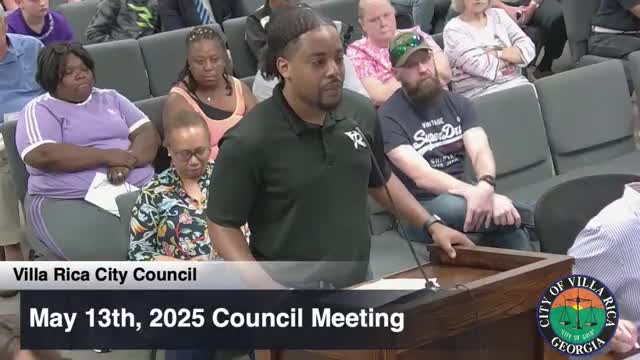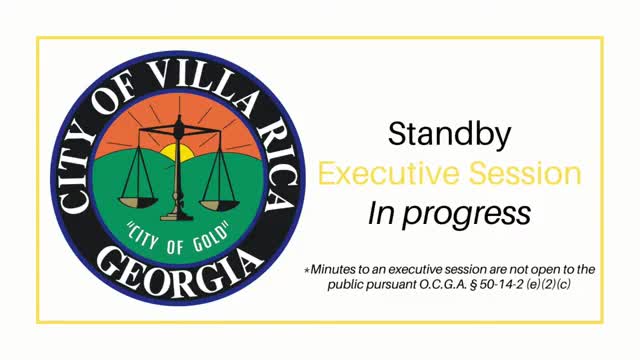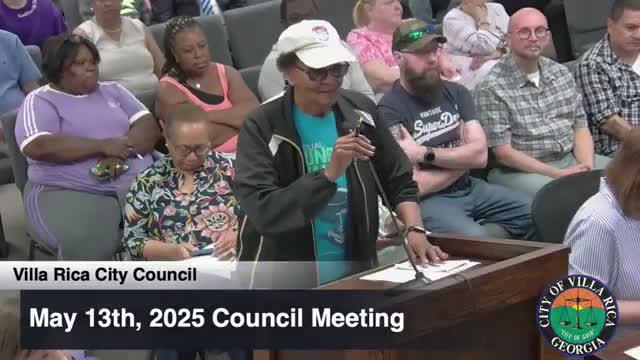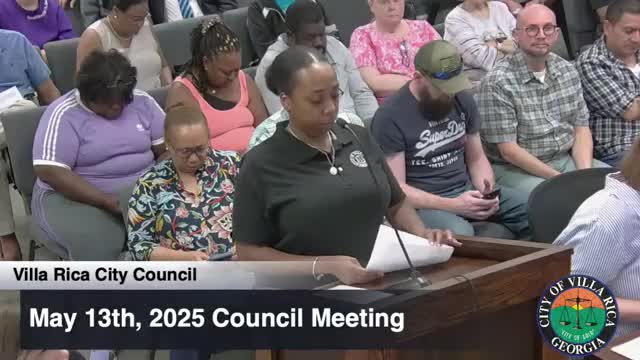Article not found
This article is no longer available. But don't worry—we've gathered other articles that discuss the same topic.

Villa Rica council approves rezoning, annexation for proposed data center with conditions

Villa Rica council names interim managers, approves pay increases and property purchases after executive session

Residents tell Villa Rica council they face traffic, neighborhood and homelessness concerns

